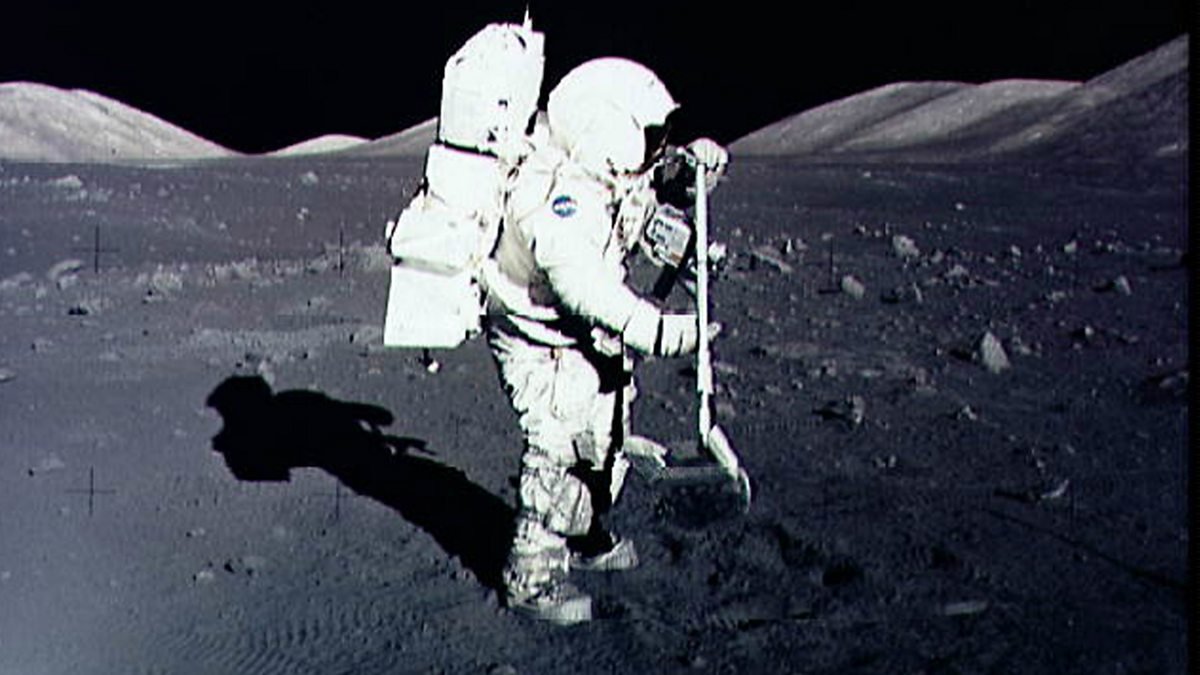The Future of Space Exploration in 2023

Space exploration has always been a topic of fascination and curiosity for humanity. From the first moon landing in 1969 to the recent successful missions to Mars, space exploration has come a long way. With the technological advancements and growing interest in space exploration, what does the future hold for space exploration in 2023? In this article, we will discuss the latest developments in space exploration, the future missions planned, and the potential impact of space exploration on humanity.
Read more: The Future of Science: 5 Innovations That Will Shape Our World
The Latest Developments in Space Exploration
The past decade has witnessed a significant shift in space exploration, with the emergence of private space exploration companies and international space exploration programs.
Private Space Exploration Companies
Private space exploration companies like SpaceX, Blue Origin, and Virgin Galactic have made remarkable strides in space exploration. SpaceX, founded by entrepreneur Elon Musk, has become a prominent player in the space industry by launching rockets, sending payloads to the International Space Station (ISS), and pioneering reusable rockets. Blue Origin, founded by Amazon CEO Jeff Bezos, is developing a reusable suborbital rocket system for space tourism and scientific research. Virgin Galactic, founded by British entrepreneur Richard Branson, aims to provide suborbital spaceflights for space tourists.
International Space Exploration Programs

International space exploration programs like the International Space Station (ISS) and the China National Space Administration (CNSA) have contributed significantly to space exploration. The ISS, a joint venture of NASA, ESA, Roscosmos, JAXA, and CSA, has been continuously inhabited since 2000, and it has provided a platform for scientific research in microgravity conditions. The CNSA has made significant progress in lunar exploration by launching the Chang’e missions, which include orbiters, landers, and rovers.
The Future Missions Planned
The future of space exploration in 2023 looks promising, with several missions planned.
Artemis Program
NASA’s Artemis program aims to land the first woman and the next man on the moon by 2024 and establish a sustainable human presence on the moon by 2028. The Artemis program involves the development of the Space Launch System (SLS), Orion spacecraft, and Lunar Gateway, a lunar outpost that will serve as a staging point for lunar missions.
Mars Missions
Mars missions have been the focus of space exploration for the past decade, with several successful missions to the red planet. In 2023, NASA’s Mars Sample Return mission is planned, which aims to collect rock samples from the Martian surface and bring them back to Earth for analysis.
Space Tourism
Space tourism is another area that has gained significant attention in recent years. Private space exploration companies like Virgin Galactic and Blue Origin are developing suborbital spaceflight systems for space tourism. In 2023, the first suborbital spaceflight for paying customers is expected to take place.
The Potential Impact of Space Exploration on Humanity
Space exploration has the potential to make significant contributions to humanity.
Scientific Discoveries
Space exploration has been instrumental in expanding our knowledge of the universe. By studying distant planets, stars, and galaxies, scientists have gained valuable insights into the origins of the universe, the formation of celestial bodies, and the possibility of extraterrestrial life. The data collected from space missions has led to groundbreaking discoveries and advancements in various scientific fields, including astronomy, astrophysics, and planetary science.
Technological Advancements
Space exploration drives technological advancements that benefit society as a whole. The challenges faced in space missions, such as developing advanced propulsion systems, life support systems, and communication technologies, require innovative solutions. These technological advancements often find applications in other industries and sectors, leading to improvements in areas such as telecommunications, materials science, robotics, and healthcare. For example, technologies developed for space missions have been adapted for use in medical imaging, water purification, and GPS navigation systems.
Economic Benefits
Space exploration also has the potential to stimulate economic growth and create new opportunities. The space industry has a significant impact on the economy, generating jobs, fostering innovation, and driving entrepreneurship. Private space companies, in particular, have spurred competition and investment in space-related ventures, leading to the emergence of new markets and industries. The growing demand for satellite communications, Earth observation data, and space tourism opens up avenues for economic growth and exploration.
Space Colonization
One of the most ambitious goals of space exploration is the colonization of other celestial bodies, such as the moon and Mars. Establishing sustainable human settlements beyond Earth could potentially provide a backup plan for humanity, ensuring our long-term survival and expanding our civilization. Space colonization would require the development of technologies for life support, resource utilization, and habitat construction. While it remains a distant possibility, the pursuit of space colonization drives research and development in areas crucial for sustainable living on Earth as well.
Challenges and Risks of Space Exploration

While the future of space exploration holds great promise, it is not without its challenges and risks.
Cost
Space exploration is a highly expensive endeavor. The development and launch of spacecraft, the maintenance of space stations, and the execution of missions require substantial financial resources. Funding space exploration programs often competes with other priorities, and governments and organizations need to make strategic decisions to allocate resources effectively. However, the potential benefits, both scientific and economic, are often considered worth the investment.
Safety Concerns
Space missions involve inherent risks to human life. Astronauts face physical and psychological challenges during space travel, including exposure to radiation, microgravity effects on the human body, and the potential for accidents or equipment failures. Ensuring the safety of astronauts and developing robust safety protocols is of utmost importance in space exploration endeavors.
Environmental Impact
Space exploration activities can have an environmental impact both on Earth and in space. Rocket launches produce significant amounts of greenhouse gases and contribute to air pollution. The accumulation of space debris in orbit around Earth poses a threat to operational satellites and future space missions. Addressing these environmental concerns requires the development of cleaner and more sustainable rocket propulsion systems, as well as effective strategies for managing space debris.
Read more: Smart Homes: How Internet of Things Technology is Revolutionizing Our Living Spaces in 2023
Conclusion
The future of space exploration in 2023 and beyond holds tremendous potential. Advances in technology, the involvement of private companies, and international collaborations are driving the progress of space exploration. From planned moon missions and Mars exploration to the potential for space tourism and scientific discoveries, the exploration of space will continue to captivate our imaginations and push the boundaries of human knowledge and achievement.
FAQs
Are there any plans for human colonization of other planets?
Yes, there are plans and aspirations for human colonization of other planets, particularly the moon and Mars. Organizations like NASA and private companies like SpaceX are actively working on technologies and strategies to establish sustainable human settlements on these celestial bodies. While significant challenges need to be overcome, such as developing life support systems and ensuring the availability of essential resources, the idea of human colonization in the future remains a possibility.
How does space exploration benefit everyday life on Earth?
Space exploration has numerous benefits for everyday life on Earth. It has led to the development of technologies that we rely on in our daily lives, such as satellite communications, weather forecasting, and GPS navigation. Space-based observations also contribute to our understanding of climate change, natural disasters, and environmental monitoring. Additionally, the pursuit of space exploration inspires scientific and technological innovation, which often has spillover effects across various industries, improving healthcare, transportation, and many other sectors.
Is space tourism becoming a reality?
Yes, space tourism is gradually becoming a reality. Private companies like Virgin Galactic and Blue Origin are investing in the development of suborbital spaceflight systems that will allow individuals to experience the thrill of space travel. These companies have already started taking bookings for future space tourism flights, and it is expected that in 2023, we will witness the first commercial suborbital spaceflights for paying customers. While space tourism will initially be accessible to only a select few, it holds the potential to become more accessible in the future as technology advances and costs decrease.
What are the potential risks of space exploration?
Space exploration involves inherent risks. Astronauts face physical and psychological challenges during space travel, including radiation exposure, bone density loss, and the effects of long-duration spaceflight. The complex nature of space missions also poses risks of accidents or equipment failures. Additionally, the environmental impact of space exploration, such as the production of greenhouse gases during rocket launches and the accumulation of space debris, needs to be carefully managed. Mitigating these risks requires robust safety measures, advanced technologies, and responsible space exploration practices.
How can individuals contribute to space exploration?
While space exploration may seem like a vast and complex field, individuals can contribute in various ways. One way is to support and stay informed about space-related initiatives and programs. Engaging with educational resources, attending public lectures, and participating in citizen science projects can help spread awareness and promote scientific literacy. Additionally, individuals can pursue careers in science, technology, engineering, and mathematics (STEM) fields, as these disciplines play a crucial role in advancing space exploration. By nurturing curiosity, advocating for scientific research, and embracing innovation, individuals can actively contribute to the future of space exploration.











